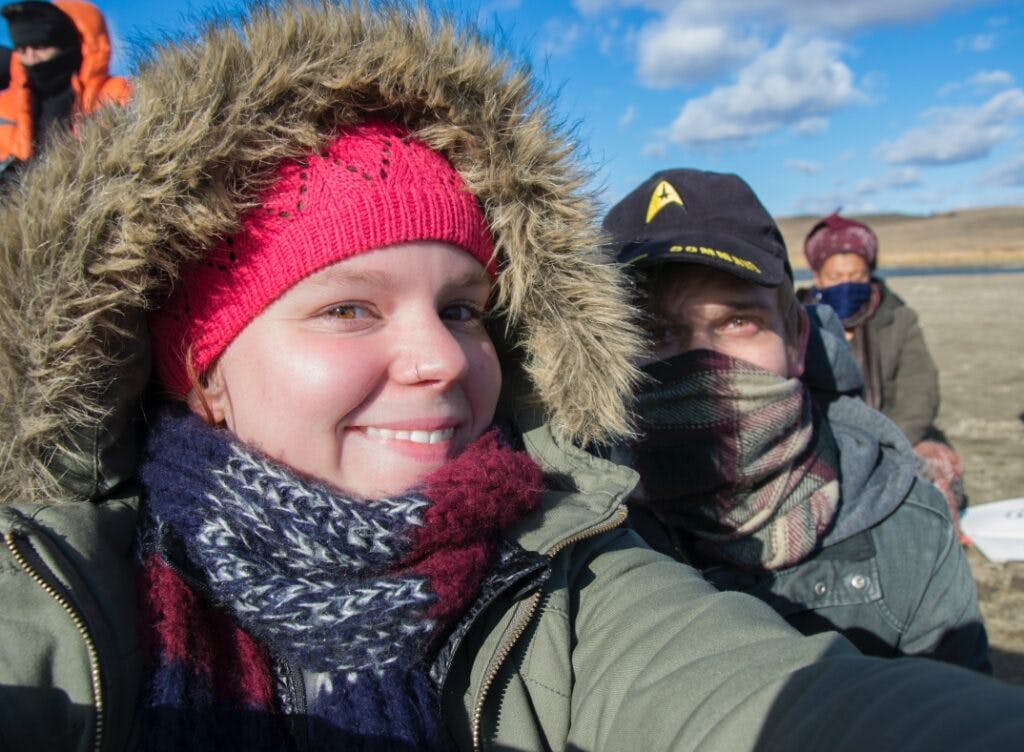Gallery Exhibit Being Held in Conjunction with Westheimer Peace Symposium
Members of the Standing Rock Sioux Tribe contend that an oil pipeline installed near their reserved lands in North Dakota endangers their drinking water and has destroyed sacred Native American sites.
PICTURED: Adjunct Professor Rachel Ellison and her brother, A.J. Seifert, are at the Standing Rock Oceti Sakowin Camp in November 2016. They will present on their experiences.
The Meriam R. Hare Quaker Heritage Center at Wilmington College is presenting a gallery exhibit associated with the controversial Dakota Access Pipeline with an opening program, titled “I Stand with Standing Rock: Allied Awareness and Activism,” Thursday (Sept. 19), at 6:30 p.m.
Normal gallery hours for the exhibit, which runs Sept. 19 through Dec. 10, are weekdays from 10 a.m. to 4 p.m.
Rachel Ellison, adjunct professor of public history at WC, will speak at the opening program on her experience as a white ally protesting the pipeline at Standing Rock three years ago. Her brother, A.J. Seifert, and Jheri Neri of the Greater Cincinnati Native American Coalition, will join Ellison in the presentation.
The exhibit documents Ellison and Seifert’s experiences as they joined the Standing Rock Sioux in North Dakota in November 2016 to protect indigenous water rights and access to clean water threatened by the Dakota Access Pipeline, which would pump crude oil through a number of waterways located on the Standing Rock Sioux Reservation.
The Standing Rock exhibit is being held in conjunction with the 2019 Westheimer Peace Symposium Oct. 1, which is focusing on the theme, “Peace and the Environment” through the lens of water justice. A full day of programming at the 29th annual symposium will include a keynote presentation by Winona LaDuke, an author, environmentalist and rural development economist. The 2007 inductee in the National Women’s Hall of Fame will speak about indigenous economics, food and energy policy.
